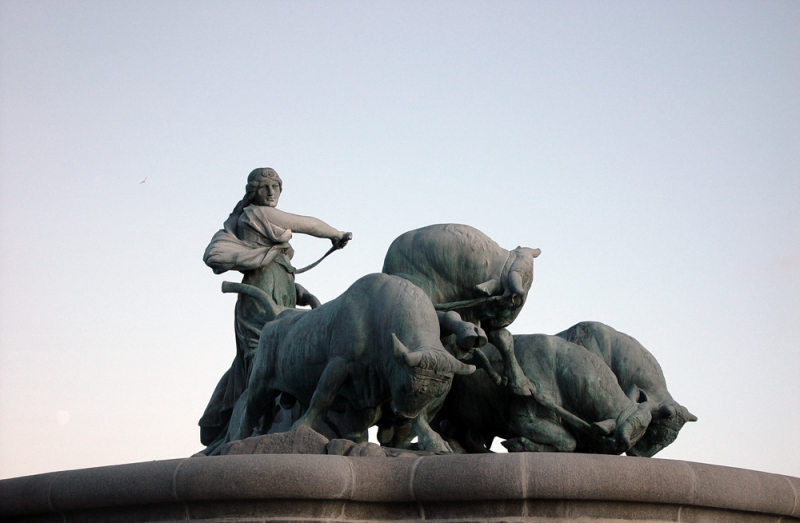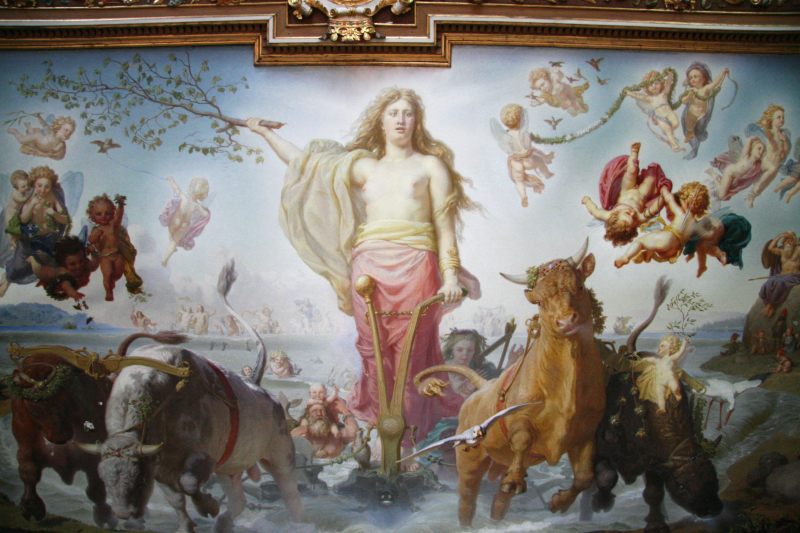Gefjon

Gefjon is a goddess in Norse mythology who is linked to plowing, the Danish island of Zealand, the fabled Swedish king Gylfi, the fabled Danish king Skjöldr, foreknowledge, her oxen children, and virginity. Gefjon appears as a gloss for various Greco-Roman goddesses in some Old Norse translations of Latin works. She is attested in the Poetic Edda, which was assembled in the 13th century from earlier traditional sources, the Prose Edda, and Heimskringla, both written in the same century by Snorri Sturluson. She is regarded as one of the most famous Norse goddesses.
Both The Prose Edda and Heimskringla claim that Gefjon cleared the area that is now Sweden's Lake Mälaren in order to create Zealand, a Danish island. In addition, the Prose Edda claims that everyone who dies a virgin becomes Gefjon's attendants in addition to the fact that Gefjon is a virgin herself. Gefjon married the fabled Danish king Skjöldr, and the two lived in Lejre, Denmark, according to Heimskringla.
In one of the stories about Gefjon, she disguised herself as a lady beggar. She had then requested some land from Sweden's king, Gylfi, while she remained concealed. She could have as much land as she could plow in one day and one night, the monarch had promised. Then Gefjon tied her four large and powerful oxen boys to a plow. She made the decision to sow in the flat and rich western region of Sweden. Her plow dug down far into the earth and removed a sizable portion of Sweden. She had built a large new island by doing this. Today, this island is known as Zealand "Sjaelland" and is a part of Denmark.











